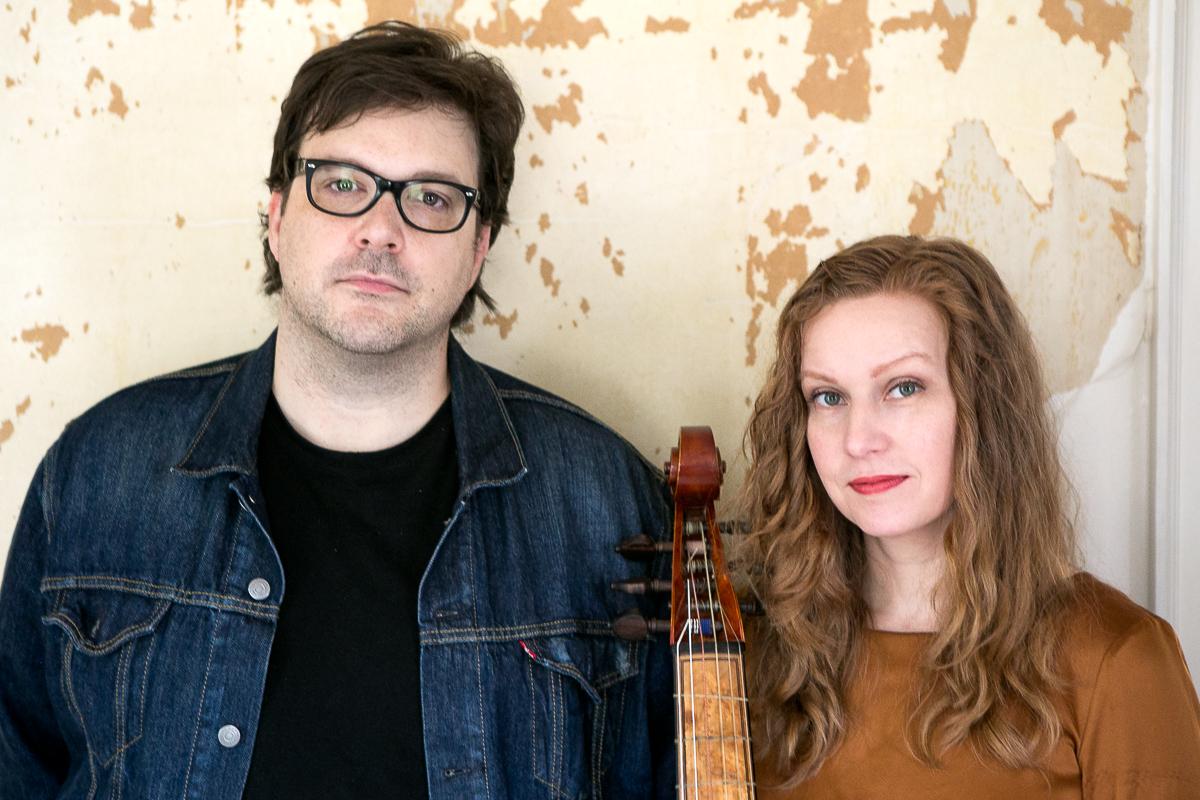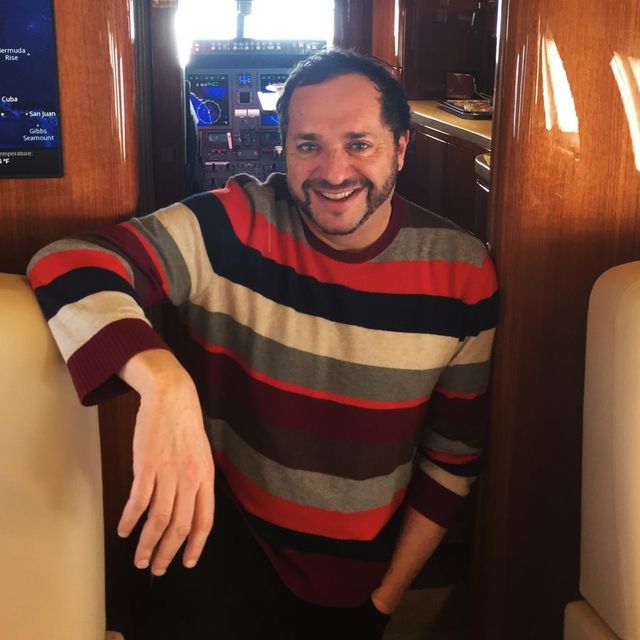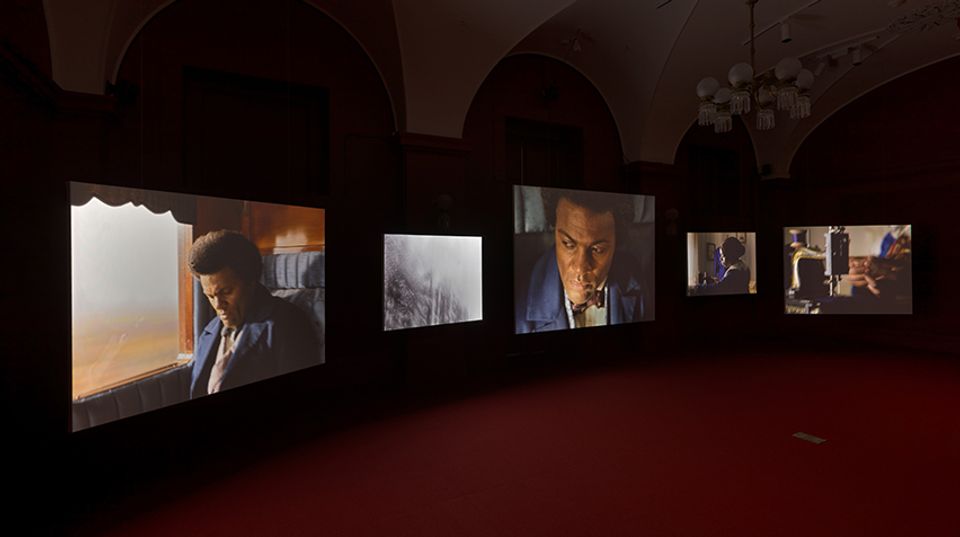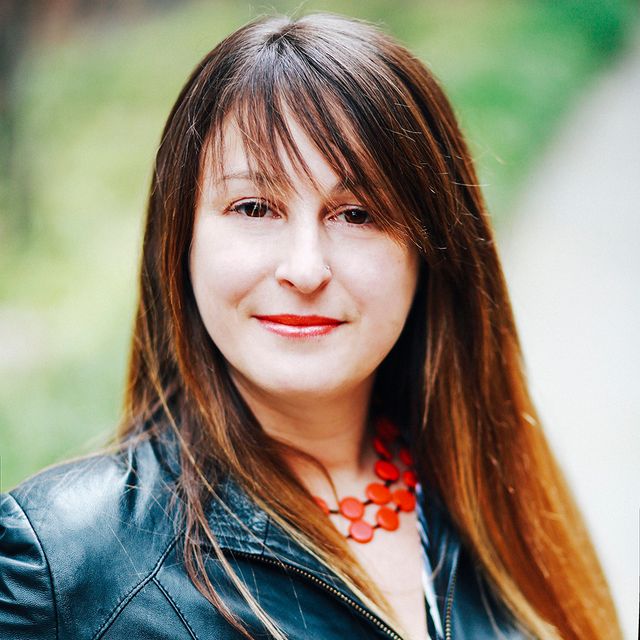From 2011 to 2020, SAAM’s Luce Foundation Center hosted Luce Unplugged, a free, monthly concert series that celebrated the work of local musicians. Since in-person events have been restricted during the pandemic, we’re teaming up with a local music podcast, Hometown Sounds, to continue to bring you music and conversations from your favorite DC artists. In our February episode, we’re talking with classically trained cellist and viola da gamba player, Amy Domingues, and multi-instrumentalist and composer, Dennis Kane. Together, they form Domingues and Kane, an instrumental duo with traditional and indie influences. Read on for excerpts from Domingues and Kane’s conversation with Paul Vodra and Anthony Porreco of Hometown Sounds. To hear the full interview, visit hometownsoundsdc.com.
Hometown Sounds: Let me start by asking you to introduce yourself. Tell us about yourselves as musicians. What projects have you been involved with?
Amy Domingues: I've been playing cello and bass and singing with a bunch of bands in the DC area since about 1995. I’ve been playing with friends in my band, Garland of Hours; guest playing; and doing lots of session work with other bands. I've played with my friend, Mary Timony, on her second solo album, Golden Dove. I played with Benjy Ferree for a couple of years, when he was living in DC. One of the earliest bands I was in was Telegraph Melts, which was a guitar and amplified experimental duo with my friend Bob Massey. Around that same time, I was also playing in Tsunami with my friends, Jenny Toomey and Kristin Thomson.
Dennis Kane: Well, I was the fifth or sixth Beatle. I was in the Rolling Stones. I've been playing in bands that you've never heard of for a really long time. Amy and I met while I was doing sound at Black Cat. I've recorded bands. I also worked with Benjy Ferree. I worked with Ex Hex on some of their stuff. One record I really remember was for The Sounds of Kaleidoscope. Oh, Amy, you played on that one too. That's the thing, Amy and I have just sort of bumped into each other over the years. It's a tight town, it was sort of inevitable.
HS: Amy, can you tell us a little bit more about your instrument in this project?
AD: I always wanted to learn this instrument, the viola da gamba, and I'd known about it since the mid-nineties. There’s an amazing French film called Tous les Matins du Monde. which is about Marin Marais, a composer during the reign of Louis XIV who wrote music for the viola da gamba, an instrument that has either six or seven strings and has frets. At first glance, a lot of people think oh, it's the cello with frets, but it's not It's like a boat guitar. It was incredibly popular from the 16th through the 18th century in Europe. Tons of composers wrote music for it, but when concert halls were built and opera became popular, composers stopped writing for it because the violin family of instruments was louder. It fell out of fashion and people stopped playing.
HS: Your most recent release is titled Rough Magick. What does that name mean to you?
AD: I think it's always hard to put a label on instrumental music. Words are kind of insufficient. I think that phrase just came to me to describe some sort of supernatural origin and an unpolished feeling to it. I study history and music history. I get submersed in alternate spellings from reading treatises and sometimes that creeps into my writing. It's the tone of the music. It’s an attitude we approach the music with, we like to put Ks on everything.
HS: Dennis, I'm a big fan of listening to your solo project, Haunted Hare, while working. I think it’s excellent music to help me focus and to fill the room with beautiful vibes. Do you ever think about the listening conditions that you create for your listeners?
DK: I try not to sound too, you know, new-agey, but there's a healing quality to music and I know that it works for me. I try to put these kind of vibes in. Maybe it's something that people feel comfortable putting on and not listening to directly, but it influences how they focus or relax or whatever. I'm not adverse to having my music described as relaxing. I don't really feel the need to rock people so hard these days. If it puts you in any kind of state of mind, then I’m doing all right.
HS: Do you miss seeing live music?
DK: For me, no, if only because I was doing live sound for 12 years or so and I got sick to death of it. I go out and see friends’ bands, but it's really hard. I work nights so it's not easy for me to get out all the time. I miss doing live shows, I miss playing them and then hanging out with people, for sure.
AD: I miss live shows. I think one of the really rewarding things about being a musician for me is performing for an audience. I know that's an ironic thing to say because in this project, Domingues and Kane, we don't play live that often because of technical considerations. During the pandemic, I've been involved in a lot of video projects, recording parts at home and sending them in. It's fun, but it's very isolating. You don't have that energy of a bunch of people in front of you, that vital human connection that's there in the physical space. I think that's been the hardest part about this year.
HS: Have you been able to make music during the past year?
AD: I did have a classical performance in Frederick, Maryland in November. They were on phase two at the time and it was a really small venue. It was me on gamba and a recorder player and a harpsichordist. There were 30 people in the audience and everyone was six feet apart and it was weird, but I was grateful to have that opportunity. Also, a performance with Mary Timony. We had to really plan and be careful, but it just made it that much more special and it's pretty awesome.
DK: I got on a really good writing trip starting back in 2019. I was going to sit on this stuff and do a couple of records or whatever. Then I was like, nah, I'll just do some EPs and that way I can mix them and finish them off and be ready for the next one. It's been great to have that. I haven't even thought about doing any live stuff. I'm so glad I don't have to do live sound because I wouldn't be working at all. In between working and writing this stuff, I've been mastering and mixing records here and there. It's just good to keep busy again. Writing five EPs-and a couple more coming by the way-has been good for my brain during all this.
Luce Listening Party with Domingues and Kane drops Friday, February 26.



















